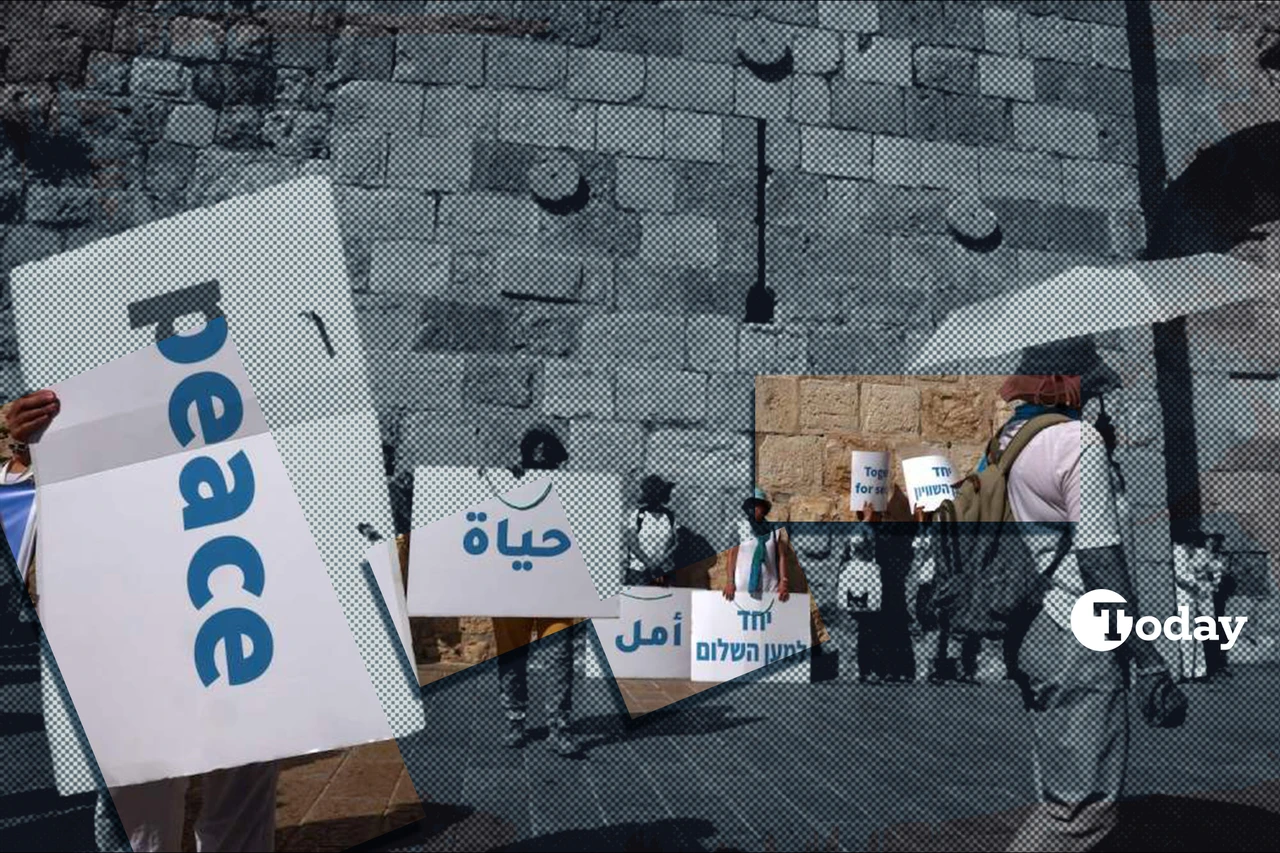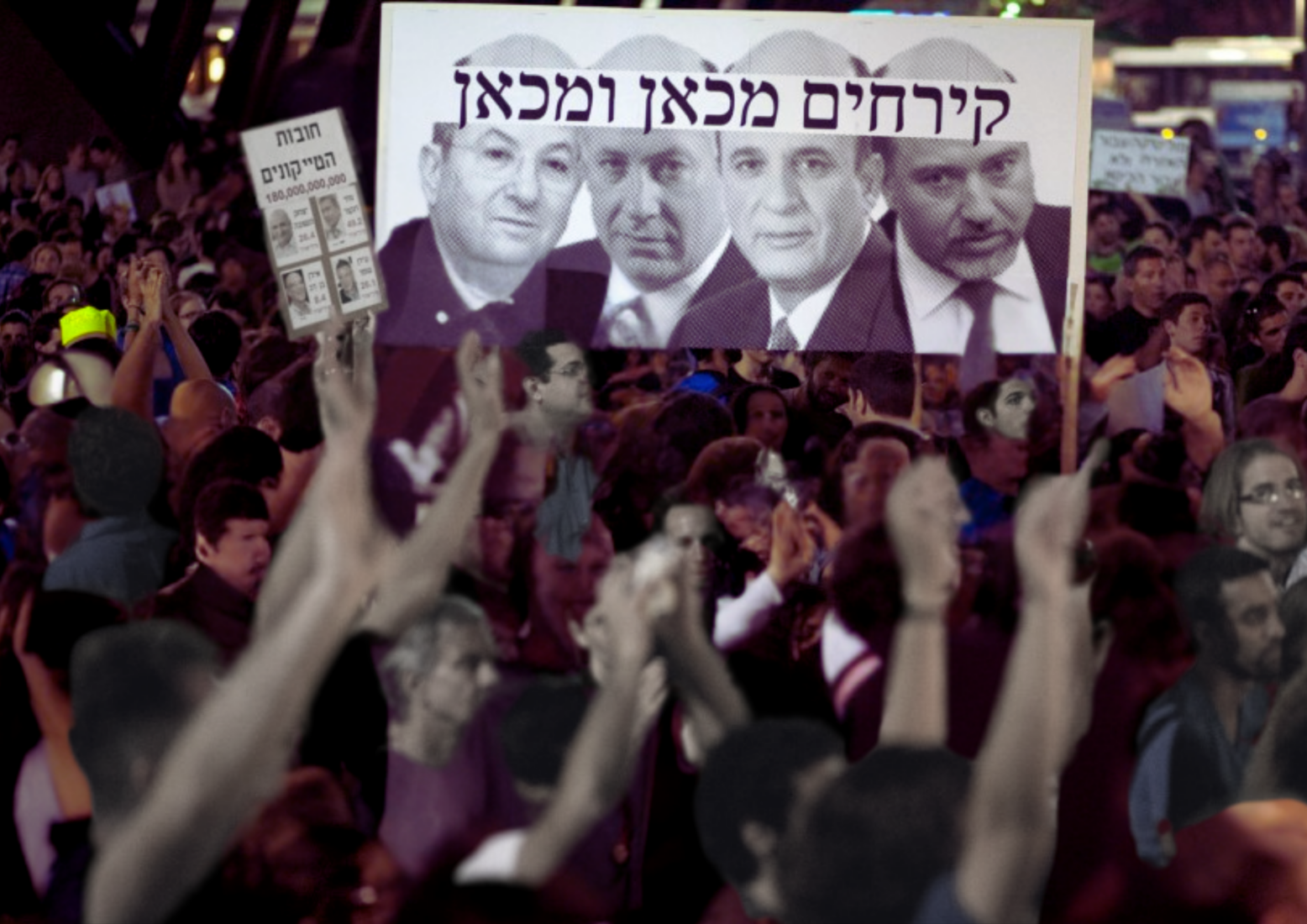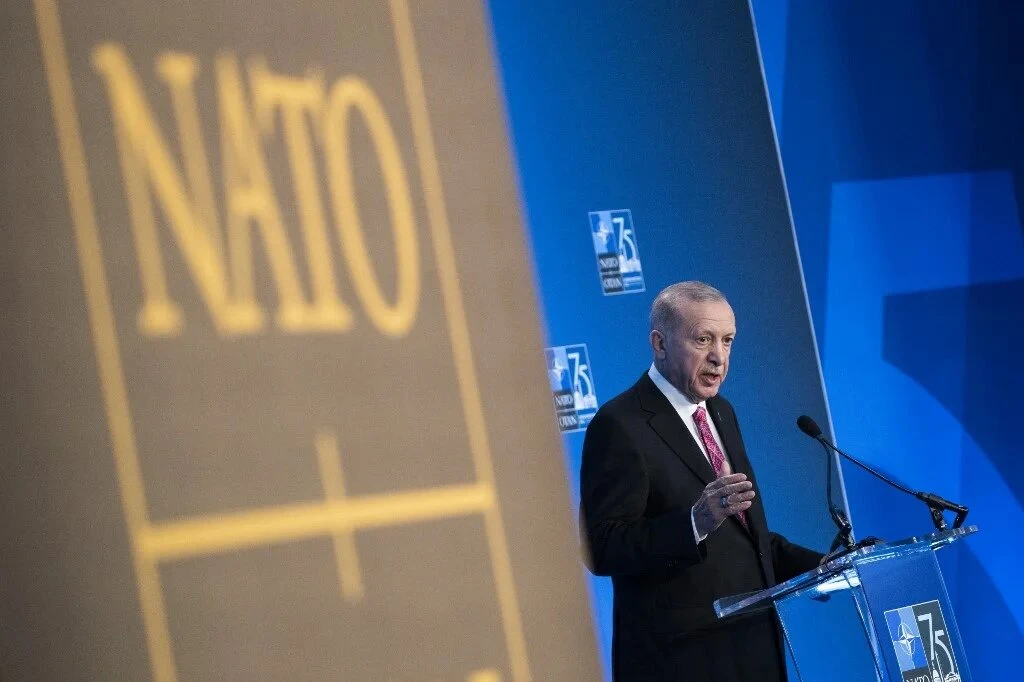Ceasefire deal lays Israel’s faultlines bare
 Women Wage Peace, an Israeli grassroots peace movement, organizing a rally which calls for coexistence and an end to the Israeli-Palestinian conflict in Jerusalem on May 19, 2021. (Collage prepared by Türkiye Today)
Women Wage Peace, an Israeli grassroots peace movement, organizing a rally which calls for coexistence and an end to the Israeli-Palestinian conflict in Jerusalem on May 19, 2021. (Collage prepared by Türkiye Today)
The recent ceasefire agreement between Israel and Hamas, allegedly brokered under mediation by the incoming U.S. administration, may have temporarily paused the violence, but it has left Israel grappling with entrenched divisions in its political and social landscape.
Prime Minister Benjamin Netanyahu, already under intense scrutiny following the October 7 attacks, faces mounting criticism from within his coalition and abroad. While the agreement has been heralded internationally as a diplomatic success, its domestic implications may usher in a period of destabilization.
The fragility of Netanyahu’s coalition was laid bare particularly after the serious beginning of the negotiations for the ceasefire deal. National Security Minister Itamar Ben-Gvir has called on other cabinet members to consider resigning in protest if implemented, potentially destabilizing the government further.
U.S. officials have expressed confidence in the deal proceeding, but with Netanyahu’s government increasingly strained, its long-term sustainability is in doubt.
Government held hostage
Israeli politics has been struggling well over a decade by its precarious power dynamics, where small yet influential kingmakers punch well above their weight. These factions, comprising of ultra-Orthodox and expansionist zionist parties, have leveraged their kingmaker status to exert disproportionate influence over policy decisions.
Tomer Persico, a Research Fellow at the Shalom Hartman Institute, remarked, “Netanyahu’s government depends on these far-right elements for survival. They compromise no more than 5-7% of Israel’s Jewish population, yet their demands shape the government’s course in a pronounced way.”
“The coalition’s survival hinges on maintaining an uneasy balance between its factions,” said Persico, speaking exclusively to Türkiye Today. “Netanyahu cannot afford to alienate his far-right partners, as he has no alternative coalition. However, this dynamic is unsustainable. If Trump pressures Netanyahu to proceed with the second phase of the ceasefire deal in six weeks, it could force his government to collapse, leading to elections.”
Even before the deal was implemented, reports suggested Smotrich’s party claimed Netanyahu assured them the operations would resume after the initial 42 days, while Ben Gvir indicated he might rejoin the coalition “if the war restarts.”
This backdrop shows once again the inherent instability within Israeli politics, where policy decisions are often dictated by the need to placate powerful coalition partners rather than broader national interests.

Netanyahu’s lone stage
Netanyahu’s political dominance has often been attributed to the lack of viable alternatives—a perception shaped by the elimination of rival right-wing or centrist figures, sometimes through coalitions with him and other times by opposing him and losing relevance over time. However, the ceasefire deal has left Netanyahu in an increasingly precarious position.
Persico describes the agreement as a critical juncture: “This deal is perceived as a defeat. Netanyahu promised a vague ‘total victory’ but has failed to deliver. Hamas remains in control of Gaza, and Israel is releasing more than a thousand prisoners. This is not what his constituency expected.”
Netanyahu’s rhetoric has now come back to haunt him. “Netanyahu started this war in a very bad position,” Persico adds. “Under his leadership, Hamas was able to carry out the October 7′ if Trump pressures Netanyahu to proceed with the second phase of the deal, his government could topple. Elections seem inevitable as the coalition cannot withstand such pressure.”
Yet, Israel remains in political limbo due to the absence of a clear alternative. Figures like Benny Gantz, once seen as potential challengers, have failed to consolidate sufficient influence.
Gokhan Cinkara, an Israel expert, emphasizes, “There is no immediate alternative to Netanyahu in Israeli politics. While potential challengers exist, none have gathered the support required to pose a credible threat.”
Extraordinary times, however, can bring extraordinary changes. As both Persico and Cinkara agree, “Israeli politics will only take shape when elections are announced. Until then, it is anyone’s guess which new parties or figures might emerge.”
Dismantling of the Orthodox autonomy
The ultra-Orthodox community’s long-standing exemption from military service has resurfaced as a contentious issue. Granted to preserve their unique way of life, this exemption has come under renewed scrutiny following the need of Israeli forces.
Last week, the Israeli military enlisted its first group of over 100 recruits into a newly created ultra-Orthodox brigade, following a controversial decision to abolish their decades-long service exemption.
“The IDF urgently needs more soldiers,” says Persico. “There are 60,000 to 70,000 eligible ultra-Orthodox men who could serve but refuse. This dynamic is unsustainable.”
Efforts to integrate the ultra-Orthodox into broader Israeli society have historically faced resistance. Their autonomy, bolstered by state funding, has allowed them to remain insulated. However, this arrangement is increasingly viewed as untenable.
“The solution will likely involve cutting state funds to ultra-Orthodox institutions,” Persico argues. “This will force the community to integrate, including military service. It will be a painful process, but there is no alternative.”
Gokhan Cinkara, speaking to Türkiye Today, notes, “The rapid demographic growth of exempted groups has made this issue unavoidable. The tension has been simmering for decades, but it has become more urgent in the light of recent developments.”

Judiciary under siege
The ceasefire may also shift attention back to judicial overhaul, which was a major divisive issue even before.
Netanyahu’s government has sought to diminish the independence of the Supreme Court, a move widely criticized as undermining democratic principles. The recent Levin-Saar proposal may reignite the debate, particularly as the ceasefire deal redirects focus to internal problems.
“The coalition’s agenda is clear—they want to politicize the judiciary,” says Persico. “Until now, judges had veto power over appointments to the Supreme Court. The proposed reforms would transfer this power to politicians, allowing any government to appoint judges aligned with its agenda.”
While these efforts were temporarily paused, many fear they will soon resume. “If this government lasts,” Persico cautions, “they will turn their energy to the legal system, fundamentally weakening the separation of powers in Israel.”
Cinkara warns that while the reforms might help consolidate power for Netanyahu, they risk alienating moderate voters, potentially deepening Israel’s political divisions.
Dwindle of the peace sentiment
The ceasefire’s broader implications extend to public sentiment about peace. In recent days, Israeli media has framed the agreement as a dilemma between “families of captives vs. those of fallen soldiers.”
Over the past decades, the Israeli mainstream narrative and its citizens have often taken pride in their emphasis on the ‘sanctity of life’. This principle meant being willing to give up significantly more in exchange for a single captive held by the other side, symbolizing the essence of Israel’s statehood and institutional identity. However, this equation, much like the mass peace movements of the past, has now faded into history seemingly.
“The disillusionment following unprecedented atrocities has hardened public opinion,” Persico observes. “Many Israelis no longer see peace as a realistic goal.”
Ceasefire
The ceasefire deal, while celebrated internationally, has laid bare the fractures within Israeli society and politics. Netanyahu’s government, held together by a fragile coalition of far-right and religious parties, faces mounting internal and external pressures.
Whether it is the dismantling of ultra-Orthodox autonomy, judicial reforms, or the erosion of peace sentiment, the challenges ahead are immense.



